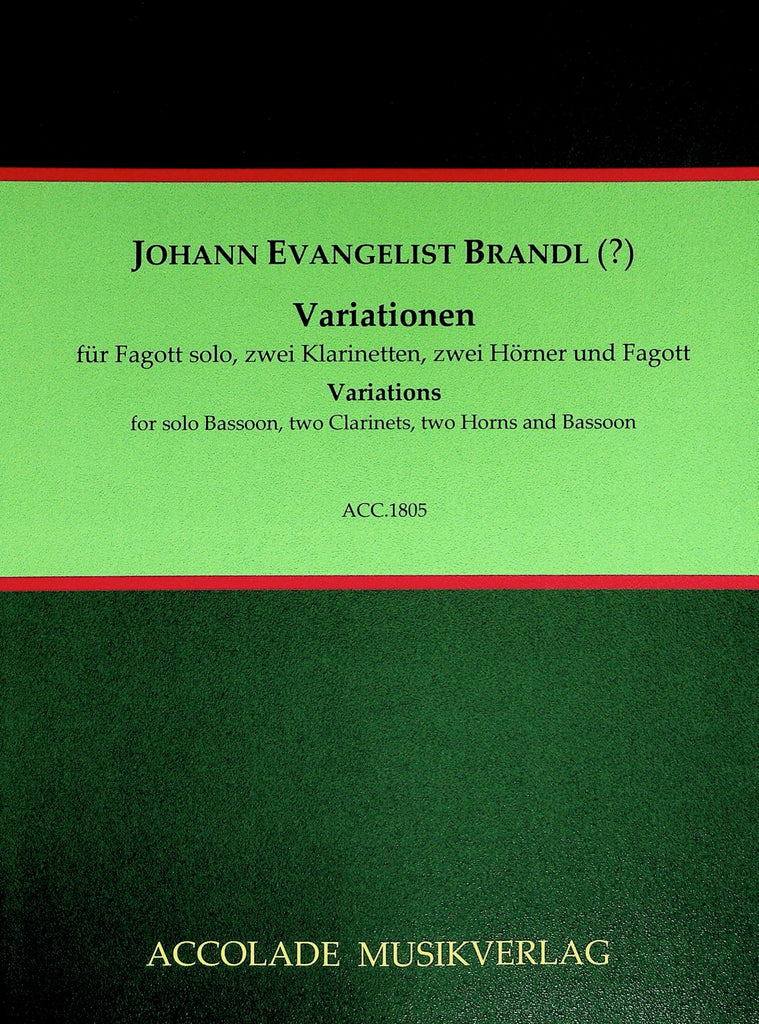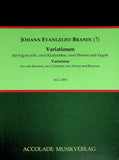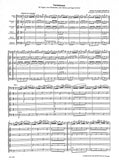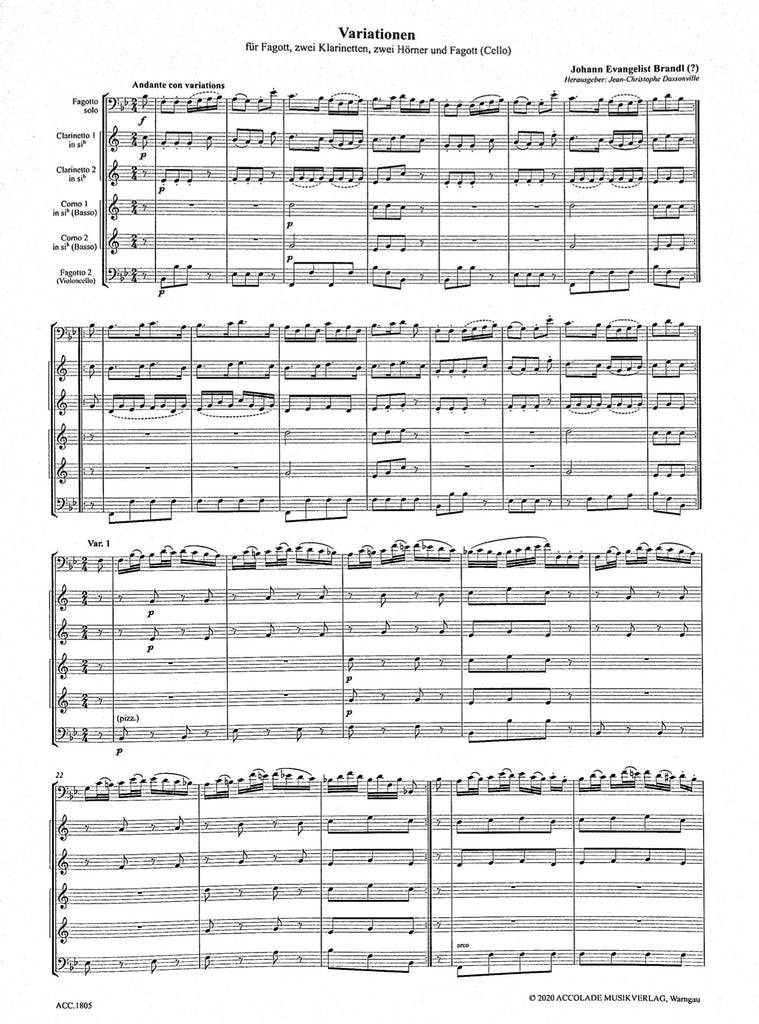Variations - BSN SOLO/2CL/2HN/BSN
Composer: Brandl, Johann Evangelist
Publisher: Accolade (Germany)
Edition: 70097
$38.95
Variations
for bassoon solo, 2 clarinets, 2 horns and bassoon
by Johann Evangelist Brandl (1760-1837)- Swiss composer and bassoonist
Thoughts on the Variations
Among the numerous music scores in the Hartmann Music Manuscript Archive are the Variations / pour le Basson / deux Clarinettes / Deux Cors / et Violoncelle, which are here in print for the first time. The name of a composer is unfortunately not given. Which of course raises the question: who composed these folksong-like variations, written for an ambitious bassoonist and the rare accompaniment of four wind instruments and cello?
It does not appear to be a purely francophone master, because although the title is written in French, the individual parts have Italian names: Fagotto, Clarinetto 1° und Clar.to 2do, Corno 1°, Corno 2do and Basso.
The place of discovery - the Hartmann Archive - suggests that the composer might be JOHANN EVANGELIST BRANDL (1760-1837). Didn't this one, in his time as the second music director of the Grand Ducal Theatre in Karlsruhe, numerous works written for the textile manufacturer and bassoon lover Jacques Hartmann (1774-1839) from Munster near Colmar.
However, what prompted the composer to combine five wind instruments with a cello? In the symphony orchestra of J. Hartmann's textile factory, as the instrumentation of the bassoon concertos shows, there were also enough bassoons to form a complete wind sextet. It is possible, however, that Brandl did not write these variations for J. Hartmann, but for the court music
of his first employer, the Prince of Hohenlohe-Bartenstein. In addition to strings, there were also clarinets and horns, the only bassoon being played by Prince Carl Joseph (1766-1838), a pupil of Mozart's favourite bassoonist Georg Wenzel Ritter (1748-1808). For him Brandl wrote the Adagio and Variations op. 44 (ACC.1357). In this work the orchestra has flutes, clarinets and horns, but no bassoon! It is therefore conceivable that Brandl took Bartenstein's Variations" with him and found a reuse in Munster.
But whoever may have composed these Variations, it is a chamber-musical jewel that enriches the sparse solo literature for bassoon.





Share this item: